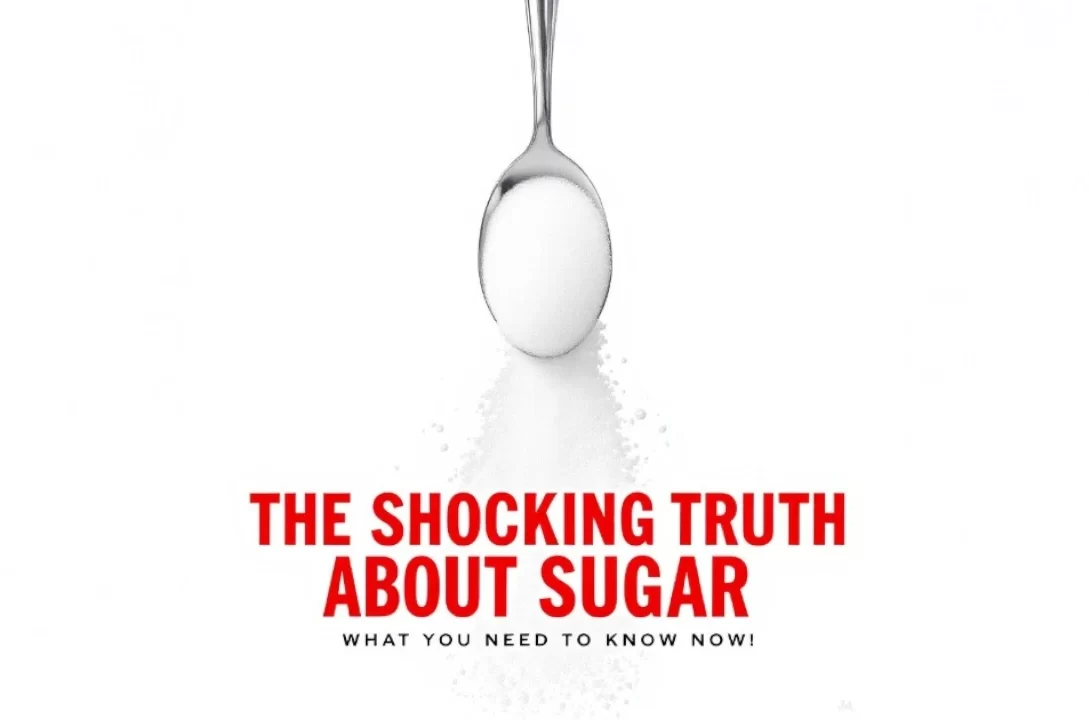Sugar is everywhere—hidden in our favorite snacks, beverages, and even foods we consider “healthy.” While it may taste delicious, the truth about sugar is far from sweet. Excessive sugar consumption has been linked to a host of health issues, from obesity and diabetes to heart disease and even mental health problems.
But how much sugar is too much? And what can you do to protect your health without giving up the foods you love? In this article, we’ll uncover the shocking truth about sugar, explore its impact on your body, and provide practical tips to help you make smarter choices. Let’s dive in!
What Is Sugar and Why Is It So Addictive?
Sugar is a simple carbohydrate that provides quick energy but lacks essential nutrients. It comes in many forms, including:
- Natural Sugars: Found in fruits, vegetables, and dairy.
- Added Sugars: Added to processed foods and beverages during manufacturing.
Sugar is addictive because it triggers the release of dopamine, the “feel-good” hormone, in your brain. This creates a cycle of cravings and overconsumption, making it hard to cut back.
The Hidden Dangers of Excessive Sugar Consumption
While sugar may seem harmless, its effects on your health can be devastating.
Weight Gain and Obesity
- Empty Calories: Sugar provides calories without nutrients, leading to overeating.
- Fat Storage: Excess sugar is converted into fat, contributing to weight gain.
Increased Risk of Chronic Diseases
- Type 2 Diabetes: High sugar intake can lead to insulin resistance.
- Heart Disease: Sugar raises blood pressure and contributes to inflammation.
Mental Health Impact
- Mood Swings: Sugar spikes and crashes can affect your mood and energy levels.
- Cognitive Decline: Studies link high sugar intake to memory problems and dementia.
How Sugar Sneaks Into Your Diet
You might be consuming more sugar than you realize. Here’s how it sneaks into your daily diet:
Processed Foods
- Packaged Snacks: Many contain hidden sugars to enhance flavor.
- Condiments: Ketchup, salad dressings, and sauces often have added sugar.
Beverages
- Sodas and Energy Drinks: These are major sources of added sugar.
- Fruit Juices: Even 100% fruit juice can be high in natural sugars.
“Healthy” Foods
- Granola Bars: Marketed as healthy but often packed with sugar.
- Yogurt: Flavored varieties can contain as much sugar as a candy bar.
The Impact of Sugar on Your Body
Understanding how sugar affects your body can motivate you to make healthier choices.
Blood Sugar Spikes and Crashes
- Energy Rollercoaster: Sugar causes rapid spikes and crashes in blood sugar levels.
- Fatigue: Constant fluctuations can leave you feeling tired and irritable.
Inflammation
- Chronic Conditions: Sugar contributes to inflammation, a root cause of many diseases.
- Joint Pain: Inflammatory responses can worsen conditions like arthritis.
Gut Health
- Microbiome Imbalance: Excessive sugar can harm beneficial gut bacteria.
- Digestive Issues: Poor gut health can lead to bloating, constipation, and more.
How to Reduce Your Sugar Intake
Cutting back on sugar doesn’t mean giving up all your favorite foods. Here’s how to do it smartly:
Read Food Labels
- Check Ingredients: Look for hidden sugars like high-fructose corn syrup or dextrose.
- Compare Products: Choose options with lower sugar content.
Choose Whole Foods
- Fruits and Vegetables: Satisfy your sweet tooth with natural sugars.
- Whole Grains: Opt for unprocessed grains that release energy slowly.
Cook at Home
- Control Ingredients: Prepare meals from scratch to avoid added sugars.
- Experiment with Spices: Use cinnamon or vanilla to add sweetness without sugar.
Healthy Alternatives to Sugar
If you’re looking to satisfy your sweet cravings without the negative effects, try these alternatives:
Natural Sweeteners
- Stevia: A zero-calorie sweetener derived from plants.
- Monk Fruit: Another natural option with no impact on blood sugar.
Sugar-Free Recipes
- Baking Substitutes: Use applesauce or mashed bananas in place of sugar.
- DIY Snacks: Make your own granola bars or energy balls with minimal sugar.
Mindful Eating
- Portion Control: Enjoy sweets in moderation.
- Savor the Flavor: Eat slowly to fully appreciate the taste.
The Role of Sugar in Mental Health
Sugar doesn’t just affect your body—it can also impact your mind.
Anxiety and Depression
- Mood Swings: Sugar crashes can exacerbate anxiety and depression.
- Brain Function: High sugar intake may impair cognitive abilities.
Addiction and Cravings
- Withdrawal Symptoms: Cutting back on sugar can lead to headaches and irritability.
- Breaking the Cycle: Gradually reduce sugar to minimize withdrawal effects.
Sleep Quality
- Restless Nights: Sugar can disrupt your sleep patterns.
- Energy Levels: Poor sleep leads to fatigue and increased sugar cravings.
Debunking Common Sugar Myths
There’s a lot of misinformation about sugar. Let’s set the record straight.
Myth: Natural Sugars Are Always Healthy
- Reality: Even natural sugars can contribute to health issues if consumed in excess.
Myth: Sugar-Free Means Healthy
- Reality: Many sugar-free products contain artificial sweeteners with their own risks.
Myth: You Need Sugar for Energy
- Reality: Your body can get energy from healthier sources like complex carbs and proteins.
FAQs
1. How much sugar should I consume daily?
The American Heart Association recommends no more than 25 grams (6 teaspoons) of added sugar per day for women and 36 grams (9 teaspoons) for men.
2. Are artificial sweeteners a good alternative to sugar?
While they can help reduce calorie intake, some artificial sweeteners may have side effects. Natural options like stevia are often a better choice.
3. Can I still eat fruit if I’m cutting back on sugar?
Yes, fruits contain natural sugars along with fiber, vitamins, and antioxidants, making them a healthy choice in moderation.
4. How long does it take to break a sugar addiction?
It varies, but most people notice reduced cravings within a few weeks of cutting back.
5. What are the signs of consuming too much sugar?
Common signs include weight gain, fatigue, frequent cravings, and mood swings.
Conclusion
The truth about sugar is shocking, but it’s not too late to take control of your health. By understanding the hidden dangers of sugar and making smarter choices, you can reduce your intake and improve your overall well-being.
Start small—read labels, choose whole foods, and experiment with healthier alternatives. Remember, every step you take toward reducing sugar is a step toward a healthier, happier you.
Ready to make a change? Begin your journey to a sugar-free lifestyle today and experience the benefits for yourself!
Useful Links:
This article is your ultimate guide to understanding the truth about sugar, offering actionable tips, expert insights, and a clear roadmap to better health. Start your journey today!















